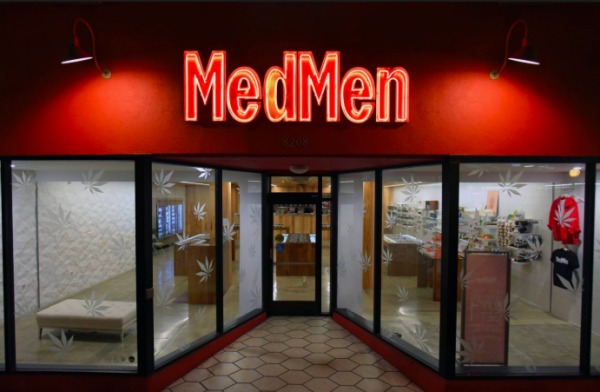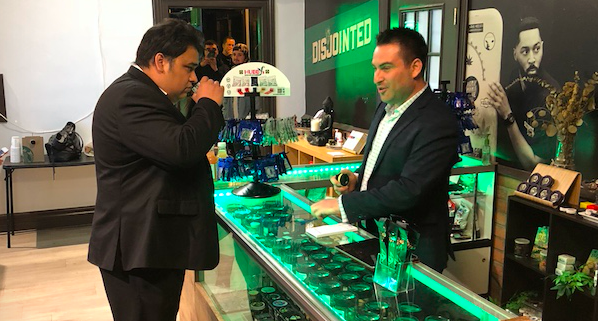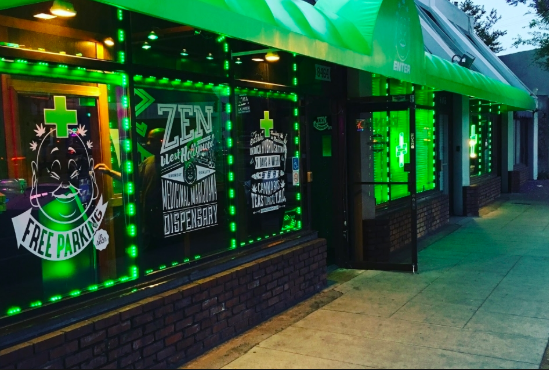
So why did West Hollywood’s four existing cannabis dispensaries, which continue to push the City Council to grant them permanent recreational sales licenses, lose out in their competition for those eight licenses?
An analysis of the 54 criteria used by the independent committee appointed to score the 94 applications received by the city offers an explanation.
The five-member application evaluation team appointed by City Manager Paul Arevalo graded 313 applications in five major areas (business plan, design concept, security plan, experience and overall quality) with a total of 54 subcategories. The 94 applications for recreational cannabis licenses were part of a total of 313 applications that included other licenses such as medical cannabis sales, cannabis smoking lounges, cannabis edibles lounges and cannabis delivery services. The evaluation took place over many months and cost the city a total of $325,000.
The grades that each of the five evaluation team members gave to each of applicants were averaged, with those averages added up across all categories to develop a final score. The eight winners had an overall average score of 178.71 points across all categories.
By contrast the overall average score of the four existing cannabis businesses was 168.68 points. The closest runner up among those businesses, whose lobbyist has dubbed them “The Originals,” was Los Angeles Patients and Caregivers Group, with 172.22 points, 96% of the average score of the winners. Next was Zen Healing Collective, whose total score was 95% that of the average of the winners. LAPCG and Zen ranked No. 9 and 10 respectively among the total 94 applicants. In third place was MedMen, with a total score that equaled 94% of that of the winners followed by Alternative Herbal Health Services, whose total score was 92% of that of the winners. MedMen ranked 13thamong all applicants and AHHS ranked 17th.
Here are some specific categories where each of the existing cannabis businesses fell short in comparison to the winners:
Alternative Herbal Health Services
AHHS’s score in the assessment of its business model as innovative was 87% that of the average of the ten winners. Its ranking was 89% of that of the winners in the Connection to WeHo category (ability to serve West Hollywood and familiarity with the city), a ranking boosted a bit by the fact that its score in the subcategory of reflecting WeHo Core Values was 103% that of the winners. Its score in the Local Business Partnerships (procuring goods and services from local businesses) subcategory was 74% that of the winners.
In the Operations category, AHHS had low scores in the subcategories of handling product recalls (60% that of the winners) and the subcategory of employee training (74%). Employee training looked at the quality of training about differences in and potency of cannabis products and laws governing personal use).

The overall Social Equity category was the one where it ranked lowest in comparison to the winners, with a total score that was 86% of their average. The category included assessments of an applicant’s provision of a living wage and employee benefits in compliance with the law and having employee non-discrimination policies. AHHS’s score in working with small cannabis cultivators was 69% that of the winners and its score in the Economic Inclusion in Production subcategory was 63% that of the winners. That subcategory was a look at the degree to which an applicant would purchase products in census tracts where the income levels are below the state average. AHHS got somewhat of a boost in the overall category with a Significant Social Equity subcategory score that was 106% that of the winner. That category included other social equity components, including involving minorities in the business or its ownership.
AHHS’s score in Product Procurement was only 62% that of the winners. And its score in the Environmentally Conscious Producers subcategory was only 68% that of its competitors.
Los Angeles Patients and Caregivers Group
LAPCG’s score in the online ordering system educational component subcategory was 48% that of the winners. That subcategory evaluated applicants based on actions or plans to educate online customers about cannabis products and their potency. Its other significantly low ranking came in the subcategory of Armored Car (daily cash pickups by an armored vehicle), where its score was 63% that of the winners. It also had a score in the Design Concept Creativity subcategory that was 78% that of the winners.
MedMen
MedMen’s lowest score in relation to that of the winners was in the Significant Social Equity category, where it garnered only 44% of the average number of point awarded to the winners. It score in the subcategory of Compensation Package was only 77% that of the winners. That subcategory looked at the quality of the compensation package offered to employees, including salary, health and other insurance benefits, a retirement plan and paid leave). It also ranked relatively low in dealing with environmentally conscious cannabis producers (a score that was 74% that of its competitors).

Zen Healing Collective
Zen ranked lowest in comparison to the winners in the ranking of its process for handling product recalls, where it got only 60% of the score of the winners. It also was ranked low in comparison to the winners in the subcategory of Procedure for Product Procurement (62%), Economic Inclusion in Production (63%)
Where the ‘Originals’ Ranked High
“The Originals” beat the average score of the winners in some of the categories. All of them beat the winners in the Experience category, a reflection of the fact that they are already in the cannabis retail business. Zen Healing Collective’s score was 113% of the average of the winners, followed by LAPCG and AHHS, whose score was 111% of the winners, and then MedMen, whose score was 106%.
Other categories where one or more of existing cannabis retailers bested the winners were:
Environmentally Conscious Producers. Zen Healing Collective’s score was 114% that of the winners.
Integration of Security Measures. Zen Healing Collective’s score of 2.575 in the “integration of security measures” category was 115% of that of the average score of all the winners in that category. LAPCG’s score was 111% of that of the winners.
Cash Management Plan. In this category, important because the Federal law making cannabis sales illegal has curbed the ability of retailers to use credit card services, LAPCG’s score was 111% that of the winners.
Employee Safety Education. Here Zen’s score was 110% that of the winners.
Experience: Ownership Team. In this category the Originals’ scores ranged from 113% to 106% the average of the winners.
Cannabis Industry Knowledge: LAPCG’s score was 103% that of the average of the winners and Zen Healing Collective’s was 105%.
WeHo Core Values. Three of the Originals had scores that equaled 111% the average of the winners. AHHS’s score was 103%
Employee Training: LAPCG ranked 4% higher than the average score of the new winners.
Product Procurement: Each of the originals except AHHS had a score that was 103% of that of the new winners. AHHS’s score was 62% of the aggregate of the winners.
The West Hollywood City Council on Monday night voted four to one to agreed to extend the recreational cannabis sales licenses granted temporarily to the Originals until the eight newly licensed businesses are up and running.

It all just seems to bizarre. Like a movie about a city giving licenses to sell pot in which all of the screenwriters are smoking weed as they write. I’m just curious about the adjudication of some of the criteria. Furthermore, a lot of the categories sound frivolous. Why is “creative design” a criteria? What does that even mean? It seems like there were criteria for everything but whether the product they were selling was of top quality, or had a large selection to choose from. It almost sounds like the criteria were specifically chosen to favor certain types of… Read more »
The originals should be given a list of improvements the city wants them to complete to be eligible for a license, and if they agree to the improvements, they should be given them automatically. They should be given credit for being in the community first and being willing to take the risk to start their businesses in the face of all the regulations and requirements that they had to navigate during the time marijuana was only for medical purposes. If these new dispensaries and lounges are going to be so much better than the originals then they should have no… Read more »
This is sickening. I walk to these places ZEN and MED-MAN to by balm. I have COPD and could never handle buying product and inhaking smoke. that’s thank you wise COUNCIL – SELFISH COUNCIL. I know two people opening lounges and stores. HMMM? How coincendental. ‘
MEDMEN is an OTC stock get real council. I mean. I go to Gelsons for food and cook while I am there. I go to bakery and Bake. I go to Retaurant to prepare my own meals and lounge.
As I understand it the city collected approx 3million in application fees and if there was a ‘cost’ meaning expense of $325k the application process had a profit. This profit was discussed at the council meeting w regards to returning some of the funds to consumption lounges that may not be able to open and sell bud in their business model die to changes in the state law.
Pink.Dot won? Are you kidding me?
This is a case of analytics vs the ‘eye test.’ You had 4 businesses selling cannabis successfully in West Hollywood for over ten years. It made no sense to have these existing businesses who have built up such good will in their neighborhood have to go through this evaluation process for an adult-use license. That Council wanted a firewall and not to have a first come first serve policy is understandable. Their error was in not excluding the existing four businesses from the evaluation process and not grandfathering them in. The response from WeHo residents was overwhelming. Common sense tells… Read more »
LAPCG is 15 years of continuous operation.
Non of the “original 4” sold recreational pot, they only sold medicinal pot. So they can’t be “grandfathered” into something they never did.
Legal recreational pot use, it’s variety of products, stores and lounges are new concepts. Applicants for licenses that apply to those new business plans had an open playing field as they should.
All the “original 4” have grandfathered licenses that allows them to continue selling medical marijuana just as they have for many years.
A couple corrections of the facts: You had 4 businesses selling medical cannabis successfully in West Hollywood for over ten years. (note the word “medical”) The Council did grandfather each of them in for the medical cannabis sales and did exclude the existing four businesses from the evaluation process for obtaining one of the 8 medical cannabis licenses. You are correct that Council will have the opportunity to decide to grant additional licenses (some already won licenses in other categories, just not in adult-use recreational) in the months to come. Personally, I think it’s a difficult decision for Council to… Read more »
I do not believe that only one person, City Manager, should have selected the evaluation team. there should have been more people involved to eliminate the appearance of preferential treatment and malfeasance. The process and results of the very expensive study need to be made public on paper for review by anyone who wants to see it. Not enough transparency in the whole process. If I were an original applicant I would consider a lawsuit against the City. There might have been laws broken in this process. It’s very difficult to believe that the City has the right to reduce… Read more »
The results for each applicant can be found on the city’s website: https://www.weho.org/business/cannabis
Thank you Henry, but I’m referring to the financial statements. Proof of the cost of the study, precisely how the money was spent and proof of application fees by businesses. We have the right to see that information.
$313,000. in application fees to the city (Approximately $10,000 each x 313 applicants).
$325,000 cost to the city for this process? How does that work?
Who were the deciders hand picked by Manager Paul Arevalo? That is the question.
How could this cost the City (us taxpayers) $325,000 to process the 313 applications when each applicant had to pay an expensive non-refundable fee which netted WeHo over a million dollars?